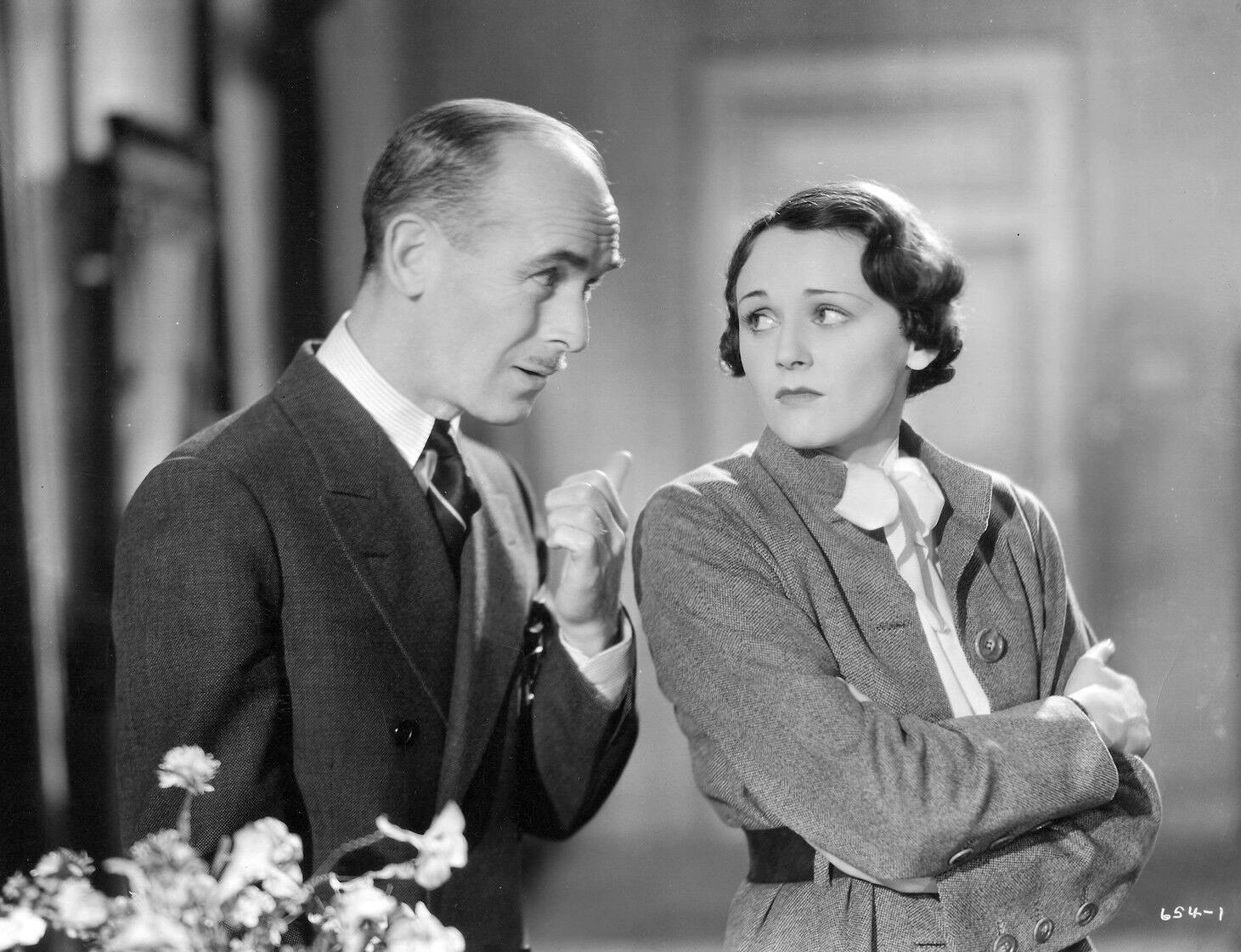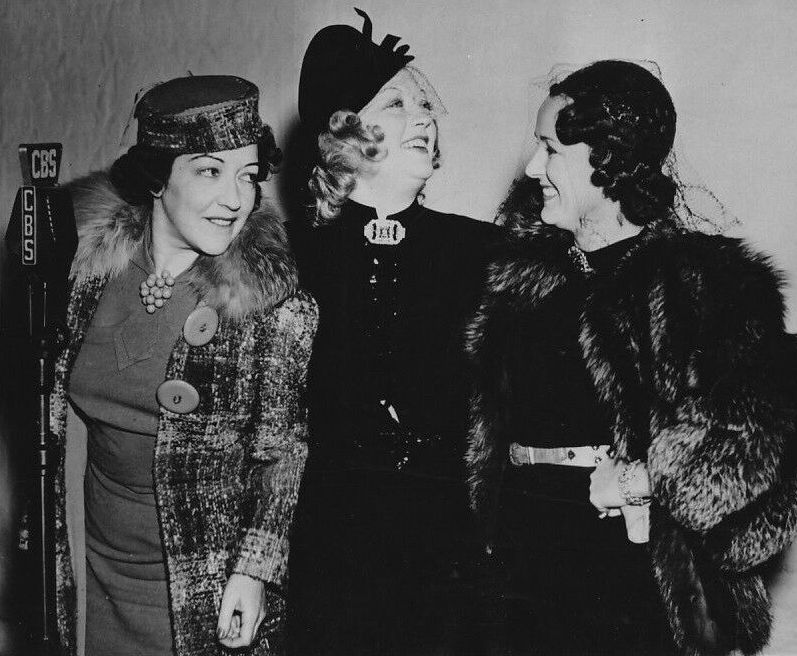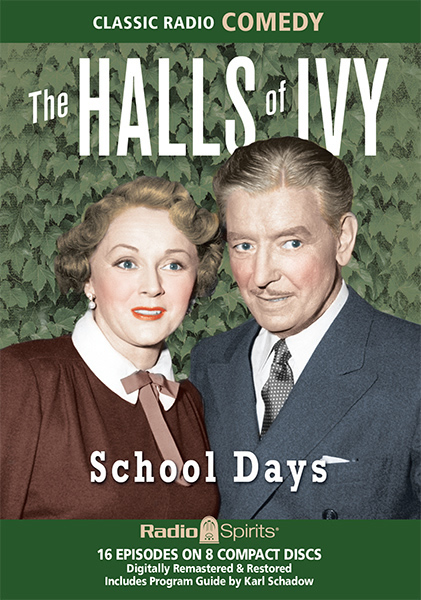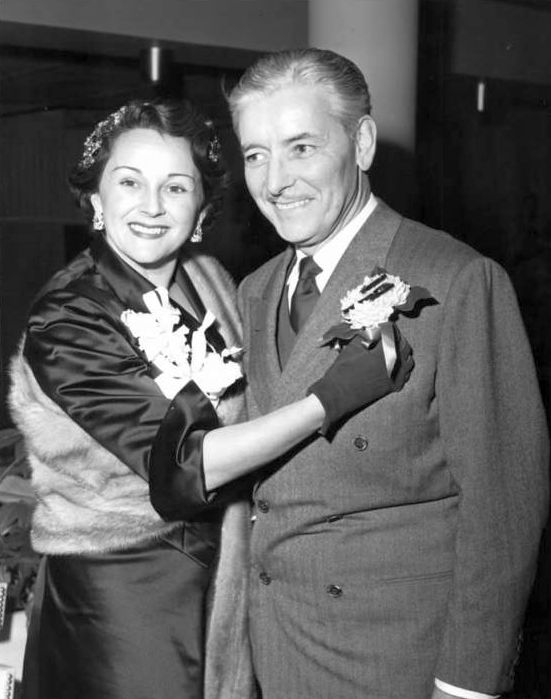Happy Birthday, Benita Hume!
Posted by Ivan G. Shreve, Jr. on Oct 14th 2019
When Jack Benny and his writers concocted the script that would introduce actor Ronald Colman as Jack’s “next door neighbor” on The Jack Benny Program, the writers’ first inclination was to hire an experienced radio actress to portray Colman’s real-life wife, Benita Hume. After all, such a decision would have been safer and cheaper—the creative minds on the show reasoned that although Hume had acting experience, she was relatively unknown to American radio audiences. Benny was a stickler for realism, however, and insisted that they cast Benita in the role of…well, herself. “It was one of his more fortuitous decisions,” recalled Milt Josefsberg in his book The Jack Benny Show, “because not only did she lend more realism and publicity value to the part, but her sense of comedy and timing was so instinctively impeccable that she immediately became as important to the programs as her far better known husband.”
Benita Hume, born on this date in 1906 in Beckenham in southeast England, initially wanted a career as a pianist…but somewhere along the way she decided that an actor’s life was for her. Hume studied at the prestigious Royal Academy of Dramatic Arts, making her first appearance on stage in 1923. By 1925, she was working in silent films, such as The Happy Ending (1925) and Second to None (1927). She portrayed one of the sisters in The Constant Nymph (1928)—a movie remade a few times, notably in 1943 starring Charles Boyer and Joan Fontaine. Benita has a memorable scene in the Alfred Hitchcock-directed Easy Virtue (1928) as a telephone receptionist. Other British features in which Hume appeared as leading lady include The Lady of the Lake (1928), The Clue of the New Pin (1929), and The House of the Arrow (1930).

When Ivor Novello’s smash stage success Symphony in Two Flats went “across the pond” for a Broadway run, Benita Hume went with the production to reprise her role as “Lesley Fullerton.” (Hume would play Lesley in the 1930 British movie release, but the U.S. distributors insisted that she be replaced by actress Jacqueline Logan.) By 1933, Benita had embarked on an American movie career with roles in such films as Clear All Wires! (1933), Looking Forward (1933), Only Yesterday (1933), The Gay Deception (1935), and The Garden Murder Case (1936). Though Hume made the rounds at several studios, most of her output was based at M-G-M, appearing in such features as Tarzan Escapes (1936) and The Last of Mrs. Cheyney (1937). Her last film was Peck’s Bad Boy with the Circus, made at R-K-O in 1938—the same year she married Ronald Colman (her second husband).
Having officially retired from the acting profession, Benita Hume was content to play the real-life role of Hollywood socialite until she and her husband became “semi-regulars” on the Benny program. Jack and his writers may not have been aware of it, but this wasn’t Benita’s first radio rodeo: she had racked up credits on The Rudy Vallee Hour, The Lux Radio Theatre (notably a June 4, 1939 broadcast in which she acted alongside husband Colman in an adaptation of “The Prisoner of Zenda”), and The Doctor Fights. Hume’s appearances on the Benny show would present acting opportunities on such series as Favorite Story (okay, a little cheating here since Ronnie was the host), Maxwell House Coffee Time (George Burns & Gracie Allen), and Screen Director’s Playhouse (another go-around with “Zenda”).

Benita Hume’s best-remembered radio role also involved husband Ronald Colman: the two of them starred in the comedy-drama The Halls of Ivy, which premiered over NBC Radio on January 6, 1950. As difficult as this is to believe, the roles of Professor William Todhunter Hall (Ronnie) and Victoria Hall (Benita) were not originally created with the Colmans in mind. The June 22, 1949 audition featured Gale Gordon and Edna Best (a close friend of the Colmans). Gordon’s commitment to Our Miss Brooks necessitated that he turn down the weekly series offer, so Ronnie and Benita were off to the races in this delightful program about life at a small-town college (created by Fibber McGee & Molly’s Don Quinn). The Halls of Ivy, which would garner a Peabody Award for Best Radio Drama Series, was one of the bright spots of radio as the aural medium gradually ceded its dominance to its upstart sibling television. Though the radio run was brief (its last broadcast was June 25, 1952), Ivy later made the transition to TV in the fall of 1954 with Ronnie and Benita reprising their roles.
The Halls of Ivy only ran for one season on television but it was a particularly long one for Benita Hume and Ronald Colman. Their daughter Juliet recalled in later years that the show’s production took quite a toll on her dad: “It had been a tough haul and it showed.” Ronnie died in 1958, and the following year Benita tied the knot with actor George Sanders, her third and last husband. Benita’s last credit (according to the IMDb) was an appearance she and Ronnie made on Jack Benny’s TV show on November 4, 1956, the actress herself passed away in 1967 at the age of 61.
Milt Josefsberg recalled a hilarious anecdote about the Colmans in his previously mentioned The Jack Benny Show book. Ronnie, puzzled by a line in his script, asked Jack what his “motivation” was in reading the line. Benny responded: “Ronnie, I think your motivation is to get the biggest [expletive] laugh you can.” After the laughter from the cast and crew subsided, Colman decided to give it another try. Whereupon Benita, “in her so well-groomed and clipped, cultured tones,” answered her husband: “Ronnie dear, you heard him. Your motivation is to get the biggest [expletive] laugh you can.”

Check out Radio Spirits’ Halls of Ivy collection School Days and see for yourself that today’s birthday girl and her husband clearly took Jack’s advice. You’ll also hear Benita and Ronnie briefly on our Jack Benny collection Planes, Trains and Automobiles! Happy birthday, Benita!

